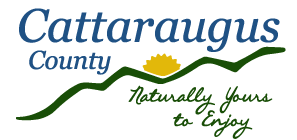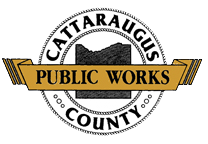The following information will help you in managing your household hazardous waste.
Check the Public Works Events page for upcoming HHW Disposal Days
- Pre-registration is required for this drop-off event.
- Bring items such as oil-based paints, stains, and thinners.
- Keep the materials in a plastic lined box or tote in the trunk or truck bed.
- Arrive at your reservation time.
- Stay in your vehicle and the recycler will remove the materials for you.
- No latex paints or motor oils.
Always Consult the Product Label:
Labels provide information about proper use and alert you if the product is potentially hazardous.
Look for:
** Signal words - DANGER, POISON, WARNING or CAUTION.
** Statements of hazards - Flammable; Vapor Harmful; Harmful or fatal if swallowed.
** Precautionary statements - Keep out of reach of children; Use only in well ventilated areas; and Do not mix with chlorine type bleaches of other chemicals.
New Yorkers generate more than 100,000 tons of household hazardous wastes each year. Because household hazardous wastes are not regulated as strictly as industrial wastes, we must each learn how to manage safely the hazardous products used in our homes, workshops, lawns and gardens. Here are some ways to help:
Waste Reduction:
- Purchase the least toxic product available.
- Use non-toxic substitutes.
- Buy only as much as you need.
- Use up leftovers or share them with friends.
Take recyclables to recycling centers!
Waste Storage:
- Keep the product in its original container with the label intact.
- Never mix chemical products.
- Wrap containers in newspaper and place in two layers of plastic bags; if the containers might leak, surround it with clay cat litter to absorb liquid; label the package.
- Place leaking containers in larger, leak proof containers clearly labeled with the contents.
- Store products out of reach of children and pets, away from heat, and away from the house, if possible.
- Store liquid flammables in their original containers or UL-approved metal safety cans, available from hardware stores. Clearly mark the cans, and if possible, store away from the house.
- Reduce disposal problems by using smaller amounts of hazardous substances, or by substituting less hazardous substances where possible.
The hazardous waste information provided here applies only to home generated wastes; business and industry must comply with applicable hazardous waste regulations.
For further information, contact the NYSDEC office in Buffalo at 716-851-7220, or the Cattaraugus County Department of Public Works, Solid Waste Division, 8810 Route 242, Little Valley, New York 14755 at 716-938-9121

